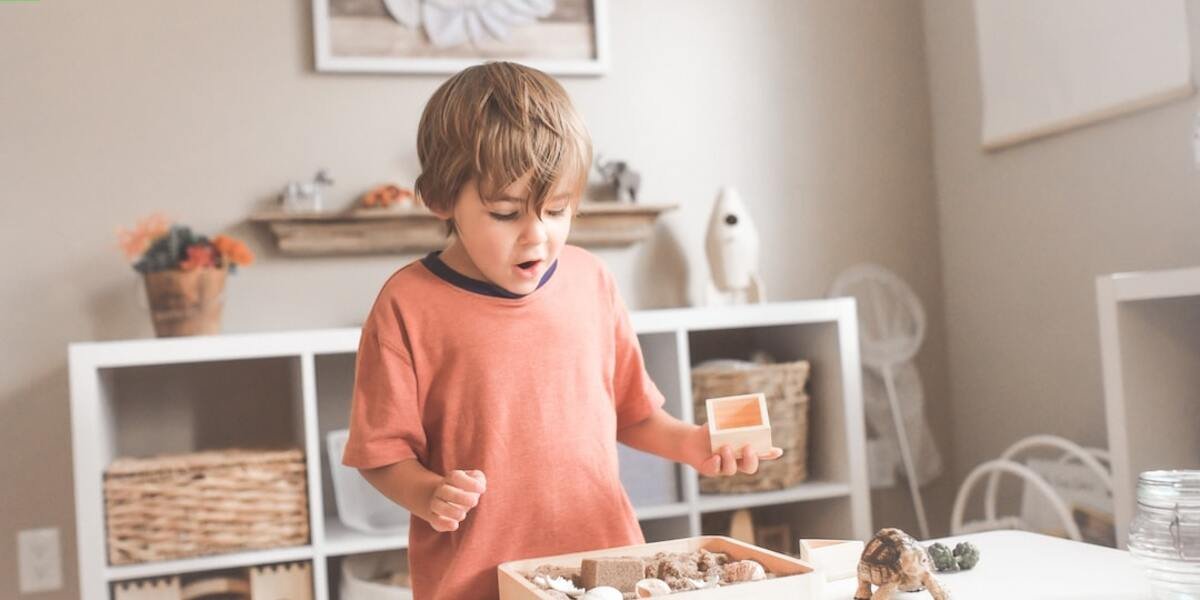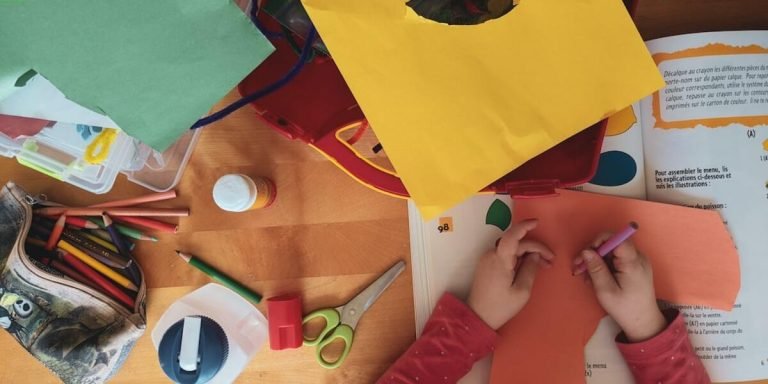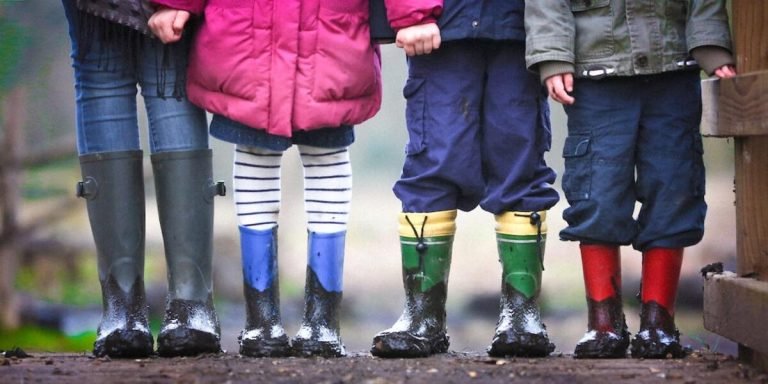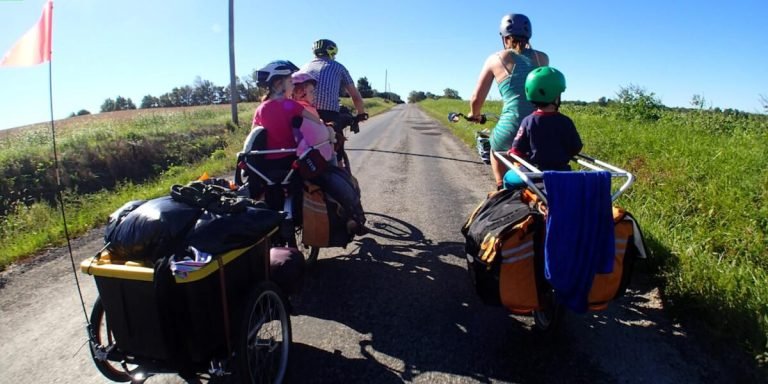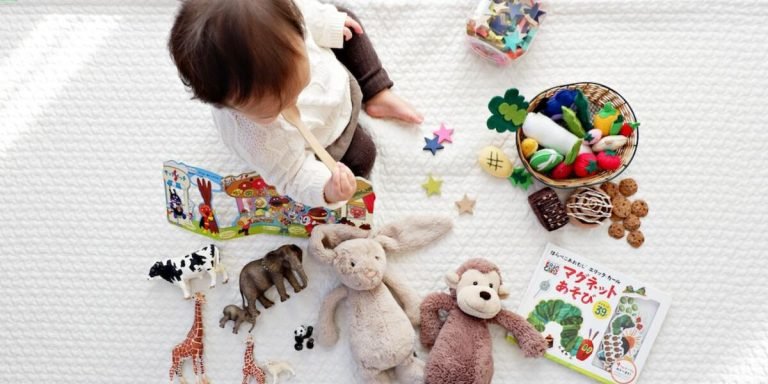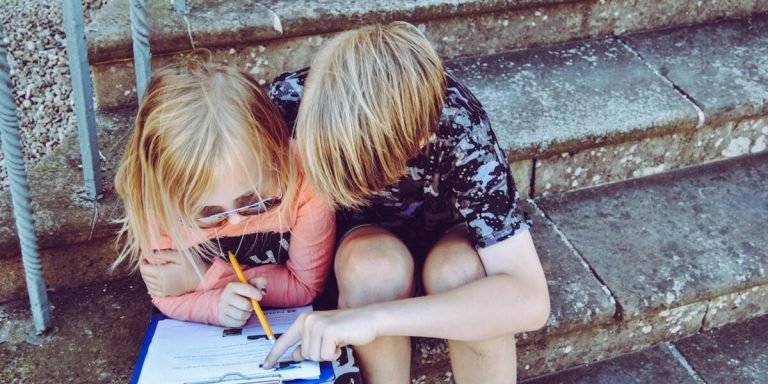Activities for Kindergartners at Home: Fun and Educational Ideas to Keep Them Engaged
Navigating early education can be a daunting endeavor, especially when it comes to finding enriching activities for kindergartners at home. Balancing your child’s playtime with valuable learning experiences is incredibly important in these crucial formative years. As parents, the aim should not only be to keep them engaged but also nourish their curious minds through experiential and activity-based learning.
Experiential Learning or Activity-Based Learning are approaches that transform theoretical concepts into practical understanding. Research has consistently shown how effective this hands-on method is at instilling deeper comprehension among children. The beauty of such forms of instruction lies in its flexibility; they could easily be integrated within countless fun and educational activities that you create right inside your home!
Did you know?
Interesting Fact: According to a report by Michigan State University, kindergartners who engage in hands-on science activities at home demonstrate greater understanding and application of scientific concepts later in school.
Unleashing Creativity: Engaging Home-Based Projects for Young Learners
Experiential learning is the cornerstone of early childhood education, especially for kindergartners. Fostering their creative potential through engaging home-based projects not only keeps them occupied, but also significantly contributes to their cognitive and emotional development. In this era where digital distractions are ubiquitous, it’s crucial now more than ever to incorporate hands-on activities that stimulate creativity and independent thought.
One popular approach is activity-based learning which involves turning ordinary situations into educational experiences. A simple household chore like sorting laundry can turn into a fun color or shape recognition game! Cooking together could be an interactive way to introduce basic concepts of measurement while fostering teamwork skills in your young ones.
These forms of experiential learning provide opportunities for personal growth as well; enhancing problem-solving abilities, critical thinking skills and nurturing a lifelong love for curiosity and discovery.
Your child’s imagination truly knows no bounds – so why should we limit our teaching methods? As parents or educators guiding children from home in 2023, let us embrace these new avenues towards dynamic learning environments tailored specifically around individual needs – unlocking each unique creative ‘spark’ within every Kindergartner at home!
Crafting a Corner of Curiosity: DIY Arts and Experiments
Creating a dedicated space for creativity and exploration can have profound effects on your youngster’s learning journey. A corner of curiosity in your home, filled with DIY arts projects and experiments, is an engaging way to promote experiential or activity-based learning.
Encourage autonomy by allowing the young learners to design their own space; this not only sparks ingenuity but also facilitates problem-solving skills. Easy-to-assemble storage boxes where they could organize colored pencils, glue sticks, paper craft materials are simple starting points for activities for kindergartners at home.
DIY art projects offer limitless opportunities, even for those without artistic expertise. Consider:
1. Paper Mache Planets: This combines science discovery about our solar system while enhancing fine motor skills through crafting.
2. Nature-Inspired Collage: Let them gather leaves during walks and create artwork that captures the beauty of nature.
3. Recycled Material Sculptures: Teach sustainability early by turning recyclable items into unique creative pieces.
1.Tornado In The Bottle Experiment: This provides understanding regarding vortex formation used universally whether explaining whirlwinds or water down drains.
Culinary Adventures: Simple Recipes for Kindergarten Chefs
Starting an exciting culinary journey with your kindergarten child can be a fun and engaging way of learning. Not only does it introduce them to the world of flavors, but it also teaches essential skills like counting, measuring, following instructions and not to mention – cleanliness!
One great activity for kindergartners at home is baking cookies. The process involves multiple steps where children learn patience as they mix ingredients together and wait for their creations to bake in the oven. This hands-on experience allows them to recognize different ingredients by sight and smell while understanding how they contribute towards creating something delicious.
Next up on our list are homemade wraps or tortillas! Letting kids choose their fillings encourages decision-making skills while assembling these treats helps develop hand-eye coordination. More importantly though, this act of cooking gives youngsters a sense of accomplishment when friends or family enjoy what’s been cooked by little hands.
How about trying smoothie bowls? Kids adore vibrant colors which makes fruits an excellent ingredient choice. Have your kindergartner wash fresh berries under cool water before blending into a wonderful puree that goes atop yogurt – nicely tickling sensory perceptions along with teaching nutritional values.
Lastly we suggest going back-to-basics; why not teach young learners about making sandwiches? From buttering bread slices evenly till adding tuna-fish salad prepared earlier from scratch; every step here imparts valuable knowledge around food-prep safety plus nutrition leading eventually towards healthier lifestyle choices down road ahead in 2023!
Fostering Cognitive Growth Through Playful Learning
In the heart of every kindergartner, lies an innate curiosity and eagerness to explore their surroundings. As parents or educators in 2023, fostering this cognitive growth through playful learning at home can provide enriching experiences that go far beyond a traditional classroom setup.
One key aspect worth noting is “Experiential Learning”. This pedagogical approach revolves around direct involvement and active participation. Instead of spoon-feeding information, activities for kindergartners hinge more on interactive hands-on tasks where learners gain understanding from exploring objects, engaging in role plays or even solving puzzles that challenge them physically and mentally.
“Activity-Based Learning”, another kinetic teaching method works along similar lines providing opportunities for young minds to observe closely – taking apart toys just to see how they function; identifying colors by interacting with various household items are some fine examples hereby helping them form perceptions about the physical world surrounding them.
Remember not all play needs structured plans always! Affording your child unstructured time offers scope for imagination leading towards creative thinking skills which are crucial in later life stages. To top it off natural social interactions spring up as children negotiate rules amongst themselves while playing together contributing significantly towards emotional intelligence too!
So don’t fret over excluding academics entirely during kindergarten years instead stay focused on initiating experiential learning both indoors & outdoors using everyday materials thereby building those vital foundational abilities inevitable yet enjoyable way right under your supervision nurturing lifelong learners outta kids now turning into confident decision makers eventually tomorrow!
Building Blocks of Knowledge: Interactive Literacy and Numeracy Games
Creating a playful learning environment for your kindergartener may not be as complicated as it seems. By leveraging everyday games and activities, parents can foster cognitive growth in their children right at home. A unique blend of interactive literacy and numeracy amusements are often the fundamental building blocks that lay a solid foundation to knowledge.
One of the proven ways to develop linguistic skills among young learners is through phonetic games. Simple tasks like writing letters with edible materials such as whipped cream or gel icing will promote alphabet recognition while keeping fun intact.
Word construction using magnetic alphabets on the fridge door also plays an incredible role in strengthening word formation concepts. Additionally, story-telling sessions filled with vibrant illustrations could stir up imagination fostering increased comprehension capabilities among young minds.
When it comes to imbuing math skills into youngsters’ day-to-day life, real-life examples play a significant part. Transform mundane grocery shopping trips into fascinating counting exercises by encouraging kids to count fruits or carton boxes placed on shelves – this makes them understand numbers better than any textbook illustration ever would!
Similarly utilizing colorful beads or legos for addition and subtraction practices provide hands-on experience making numeric calculations enjoyable rather than tiresome homework assignments! Besides these engaging tools promise more accuracy compared conventional paper-pencil methodology because ‘seeing is believing’.
Nature Exploration Activities: Bringing the Outdoors Inside
With the ongoing global changes and advancements in technology, young learners are often confined to indoor environments. Nonetheless, incorporating nature exploration activities inside can provide a wondrous opportunity for kindergartners to expand their cognitive capacities through playful learning.
1. Indoor Gardening: One of the easiest ways toddlers can experience nature is by establishing little gardens at home. Children love getting their hands dirty!
Planting seeds and watching them grow into plants allows kids not only understand plant life cycles but it also fosters patience, observation skills and responsibility.
2. Leaf Artwork: Grab handfuls of different leaves during your next park visit or walk around the neighborhood – bring these treasures back home as crafting supplies! Little ones can trace out leaf outlines on paper or create unique collages with them which enhances fine motor development while engaging creatively with natural items.
3. Weather Station: Encourage your child’s curiosity about weather patterns by setting up an easy-to-follow homemade weather station using household materials like jars, strings etc., This pivotal role-play activity helps reinforce understanding about various types of weathers whilst improving scientific terminology usage.
4. Terrarium Building: A closed terrarium serves as an ideal platform for teaching children about ecosystems that exist in our environment; furthermore building a mini-ecosystem involves decision making skills especially when selecting suitable flora species which aids problem-solving abilities advancement too!
Cultivating Social Skills with At-Home Group Activities
Experiential learning is an effective tool for kindergartners, and one that can be readily employed at home. When children actively participate in engaging tasks, they construct their own understanding of concepts which promotes long-term retention. The keyword here being “engaging”, hence the need to creatively incorporate fun activities into everyday schedules.
One area where experiential learning reaps considerable benefits is in social skill development. Social skills are foundational abilities needed not only during childhood but throughout life as well; mastering these early on sets up kids for success later down the line. Cultivating these skills at home might seem challenging given that interactions are predominantly family-based, however group activities provide a fitting solution.
For instance, regular play dates with peers consist of organically evolving scenarios requiring communication and cooperation – key elements of thriving relationships – while also incorporating other developmental areas such as problem-solving and emotional regulation. These gatherings often include games or crafts requiring turn-taking or team efforts further reinforcing desired behaviors.
On quieter days when external company isn’t possible, consider setting up role-play situations among household members like pretending to run a supermarket or hosting a pretend dinner party creates opportunities to practice manners and conversational etiquette – all contributing towards solidifying positive social norms.
Role-Playing Scenarios for Emotional Development
Understanding and expressing emotions can present a challenge for kindergartners. Incorporating role-playing scenarios in their daily activities at home provides an effective approach to foster emotional development while keeping them engaged, entertained.
Role-play activities serve as excellent teaching tools, helping children grasp complex concepts like differentiating feelings, empathizing with others, and managing conflicts peacefully. We can implement these teachings through the following simple yet impactful exercises:
One popular activity is “Emotion Charades.” In this game, you write down various emotions (such as happiness, sadness, anger) on pieces of paper and place them into a hat or bowl. Each child takes turns drawing out an emotion and acting it out without using words – only facial expressions and body language! This encourages kids to think critically about each feeling’s physical manifestations.
Another activity focuses on conflict resolution termed as the “Trouble-Solving Talk.” Parents could play pretend disputes between two characters such as toys not being shared equally during playtime or arguments over whose turn it was to feed the pet. These scenes should end unresolved; your little ones need step up next roles – problem solvers! It helps cultivate negotiation skills whilst highlighting peaceful resolution tactics.
Mini-Society Games that Teach Cooperation and Sharing
Incorporating mini-society games as part of the activities for kindergartners at home is an excellent opportunity to mold young minds in understanding cooperation, sharing and good manners. The richness of experiential learning lies in providing real-world references through these simple yet effective games.
One such activity that stands out is creating a miniature ‘Shop’. Use everyday items from around the house like fruits, vegetables or play-toys to set up this shop. Assign roles – grocers, customers; each having their particular responsibilities.
This activity not only introduces concepts like money management but also emphasizes social practices such as taking turns and polite conversation.
Another fantastic game revolves around storytelling circles – much akin to ancient societies’ traditions where knowledge shared orally was crucial for survival. Have your child invite over some friends (or you can join!) and sit in a circle with everyone contributing bits to one large story run-on style!
It engenders active listening skills while teaching children about collective creativity and respect for others’ ideas.
Lastly, consider introducing role-play scenarios wherein kids pretend they’re different community helpers- doctors helping patients during medical emergencies or firefighters putting off flames-. They allow kids understand societal structures better besides fostering empathy towards multiple professional pathways existing therein.
Conclusion
In the whirlwind of crayons, LEGO bricks, and picture books that make up the life of a kindergartner at home, finding fun yet educational activities can seem like trying to find a needle in haystack. But as this post has shown you – we’ve got needles aplenty with our extensive list of “activities for kindergartners at home”. Not only are these ideas amusing enough to keep your young ones engaged but also tuned meticulously towards their learning objectives.
Remember – childhood education isn’t one size fits all! Every child is unique and so should be his or her way of learning. Keep exploring our website for more insight into educating children according to their individual styles.
Our treasure trove of resources covers much-needed topics around parent guides, educator support tools and various approaches towards early education. Let’s navigate together through this beautiful journey called parenthood while making it an enriching experience for your kids too!

